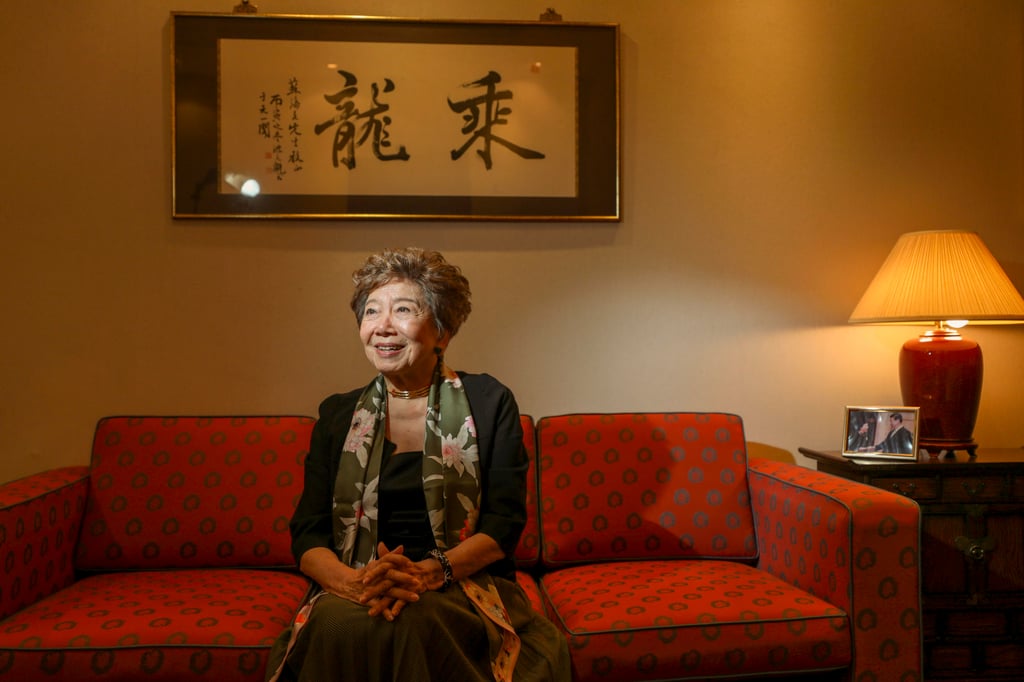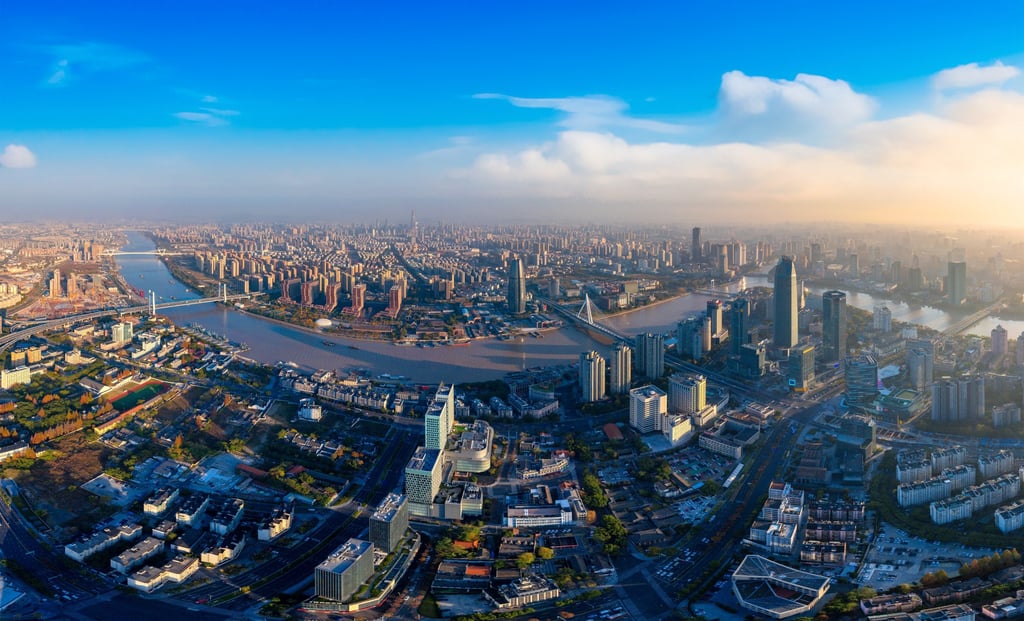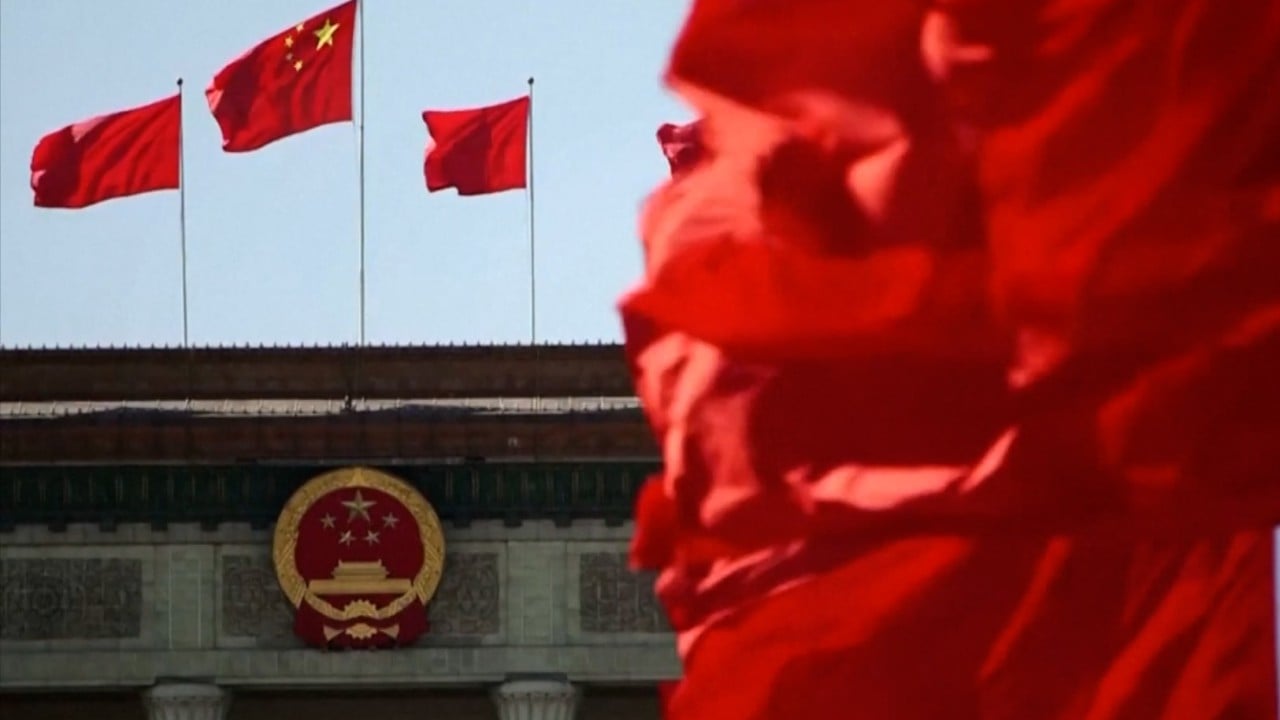A rare letter from President Xi Jinping to Hong Kong entrepreneurs with roots in Ningbo also serves as a wider call for city residents and overseas Chinese to help shore up investor confidence in the nation and a signal that the country’s open-door policy is still going strong, analysts have said.
The message from Xi urged Hong Kong entrepreneurs with familial ties to the mainland port city of Ningbo to make greater contributions to the nation’s modernisation.
It was also a response to another letter from Hong Kong business leaders who traced their roots back to entrepreneurs from the port city, including Anna Pao Pui-hing, daughter of late shipping tycoon Pao Yue-kong, and Ronald Chao Kee-young, eldest son of the late industrialist Chao Kuang-piu.
Xi expressed his gratitude to the business leaders for their ongoing support of their hometown and motherland through acts such as the building of businesses and schools.
He also acknowledged the group’s active engagement in innovation, entrepreneurship, philanthropy and education.
Xi sent the letter at a time when Hong Kong’s business community is contending with an economy still struggling to shake off the after-effects of the Covid-19 pandemic.
Lau Siu-kai, a consultant with the Chinese Association of Hong Kong and Macau Studies, a semi-official think tank, said the message was a call for city residents and Chinese living overseas to help build a prosperous motherland to counter Western narratives.
“This expectation is particularly meaningful as the United States and the West continue to suppress the great rejuvenation of the Chinese nation,” he said.
“When the country faces a severe international environment, it is particularly urgent and important for the Chinese people at home and abroad to unite and contribute their own efforts to promote Chinese-style modernisation.”
Lau said enhanced investment into the mainland from Hong Kong entrepreneurs and support helping businesses in the north to go global could help restore foreign investors’ confidence in the country.
Such a push was especially important only a month after the Chinese Communist Party held its third plenum of the 20th Party Congress, where Beijing announced its support for the private sector to take the lead in major national technological research tasks.
Xi’s message also coincided with the 40th anniversary of late Chinese leader Deng Xiaoping’s call to mobilise the global “Ningbo bang” – usually formed by merchants – to develop the port city.
In Chinese, bang means a cluster of people who are bonded together by the same goals and ideals.
Lau said the letter’s timing carried the subtle meaning that Xi was determined to continue reforms and opening-up policies pursued by Deng.
Ningbo is known as an important port and an industrial hub on the mainland and forms part of Zhejiang province, where Xi served as party secretary from 2002 to 2007.
Cliff Sun Kai-lit, vice-president of the International Ningbo Merchant Association, said the group hoped the nation could deepen certain initiatives amid the push for rapid development.
The association’s president, William Lee Tak-lun, was among the 10 business leaders who penned the letter sent to Xi.
“For example, we propose whether the high-speed rail can turn Ningbo into a transit hub to maximise its function in the country’s reforms and opening up,” Sun said.

Sun also responded to Xi’s call for greater contributions to national modernisation, saying the next generation of Hong Kong’s Ningbo bang would push for more exchanges and cooperation between the two cities in the political and commercial sectors, such as taking part in innovation and technology (I&T) projects.
Ning Po Residents Association chairman John Fan Kau-cheung, another signatory of the initial letter, said the signatories had intended to thank the country’s leader for his care and concern for Hong Kong.
He also agreed that Xi’s reply was meant for all Hong Kong residents and overseas Chinese.
“The president’s reply actually expressed his expectations for all of us, including Hong Kong people and overseas Chinese, to work together towards a strong rejuvenation of our motherland,” Fan said.
The association chairman said the organisation, which currently runs two local secondary schools, would conduct more exchange activities with the mainland to foster patriotic values among students and teachers.
Andrew Fung Ho-keung, chief executive of the Hong Kong Policy Research Institute, said he believed Xi’s reply was encouragement for local entrepreneurs to be more aggressive when investing in some national projects such as satellites or I&T initiatives.
“Xi’s reply also denotes a message that China’s opening-up policy will remain unchanged and that our nation will continue to welcome investors, including both local and foreign ones. That is why we’ve seen more easing of travel restrictions for foreigners.”

Raymond Kwok Ping-luen, chairman and managing director of Sun Hung Kai Properties, said he was encouraged by Xi’s reply.
He noted that the company was the first to return to its hometown for construction projects in the early days of reform and opening up, and had never stepped away throughout the process.
“As the country’s reform continues to advance and the door to opening up opens wider, Sun Hung Kai Properties will continue to implement the general secretary’s instructions with practical actions, leverage its own advantages to serve the needs of the country, and show greater responsibility in contributing to the high-quality development of the motherland,” he said.
New World Development said Xi’s letter showed special care for Hong Kong’s business community, vowing to fulfil its responsibility amid unprecedented internal and external challenges.
“In the process of the country’s construction of Chinese-style modernisation, we in Hong Kong’s business community have a duty to fulfil our historical responsibilities, give full play to our unique advantages, and maintain Hong Kong’s hard-won stability and prosperity,” it said.
Jonathan Choi Koon-sum, chairman of the Chinese General Chamber of Commerce in Hong Kong, said the local business community should adopt the mindset that the city was an integral part of the Greater Bay Area when pursuing opportunities.
“If you talk about manufacturing and the development of technological innovation industries, you can’t do it without Shenzhen and the Greater Bay Area, so we should join forces, we should join a boat and go to sea,” he said.
Additional reporting by Kahon Chan



